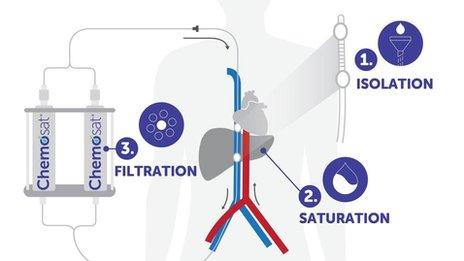Southampton surgeons use 3D printed liver model in UK first
- Published
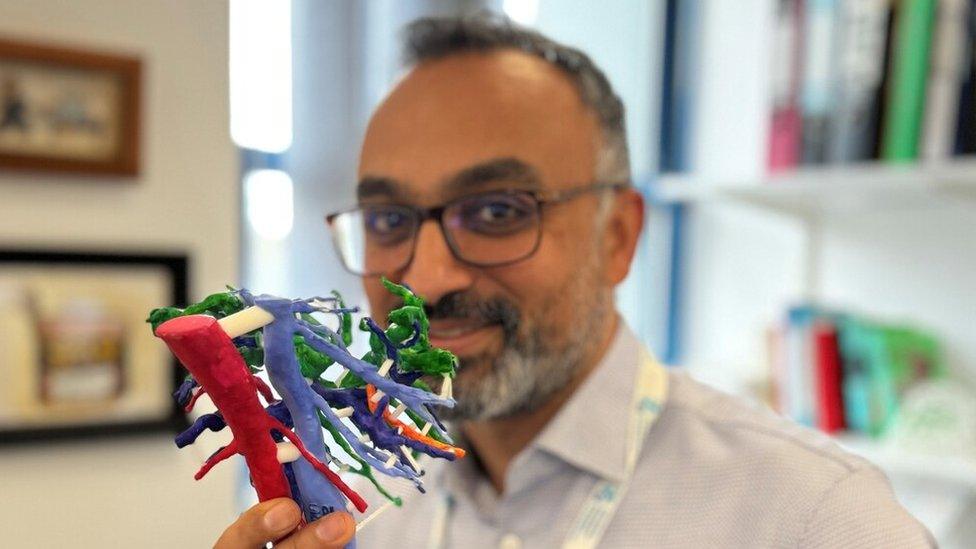
Arjun Takhar from University Hospital Southampton said the study was a "unique opportunity"
Surgeons have begun using 3D-printed models of patients' livers to help them perform a complex cancer operation in a UK first.
Experts at University Hospital Southampton are leading the study.
It is hoped that converting data from CT and MRI scans of patients into 3D models will enable better planning and decision-making prior to surgery.
The research is being supported and funded by PLANETS Cancer Charity.
Arjun Takhar, a consultant hepatobiliary and pancreatic cancer surgeon at the hospital, is part of the team of experts taking part.
He said: "3D printed models are increasingly being used to help with decision-making before and during surgery and to better understand the anatomical relationships of tumours within organ structures."
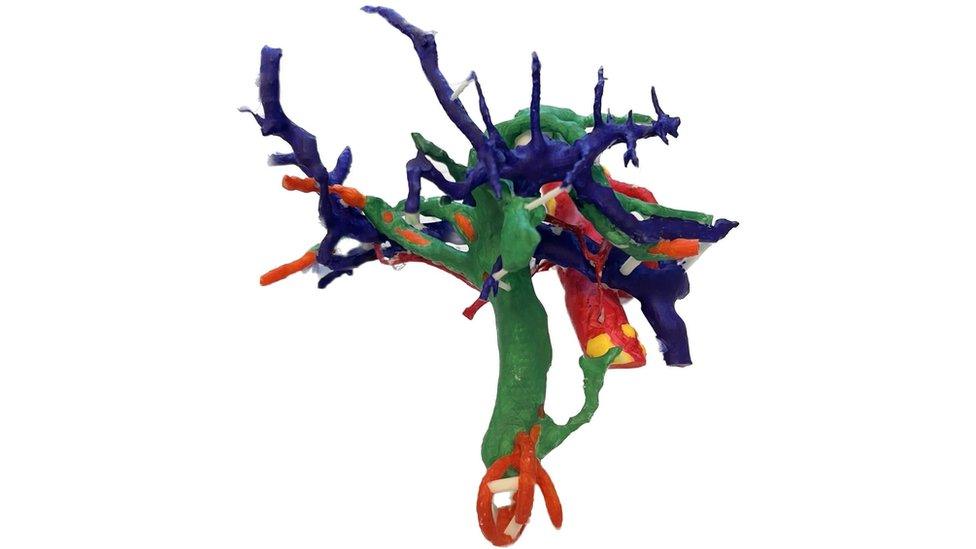
The model is created using data from CT and MRI scans
The models are being used to treat patients with hilar cholangiocarcinoma - a type of bile duct cancer.
It is often difficult for surgeons to establish whether a tumour can be safely removed or not until the operation is under way.
Mr Takhar added that surgeons sometimes will have taken an "irreversible step", only to find out that the tumour cannot be removed completely - resulting in "poor outcomes for patients in the short and long-term".
He said: "3D printing offers the advantage of assessing the tumour and its close attachments such as blood vessels and bile ducts in a scale model prior to performing the operation itself."
The aim of the pilot project was to "assess whether this allows for assessment of operability to be made without opening the patient up", he said.
"This is a unique opportunity to use a novel technology to help patients with a difficult disease and we foresee adoption of the technology in patients with other liver tumours too," he added.

Follow BBC South on Facebook, external, X, external, or Instagram, external. Send your story ideas to south.newsonline@bbc.co.uk.
Related topics
- Published14 December 2023
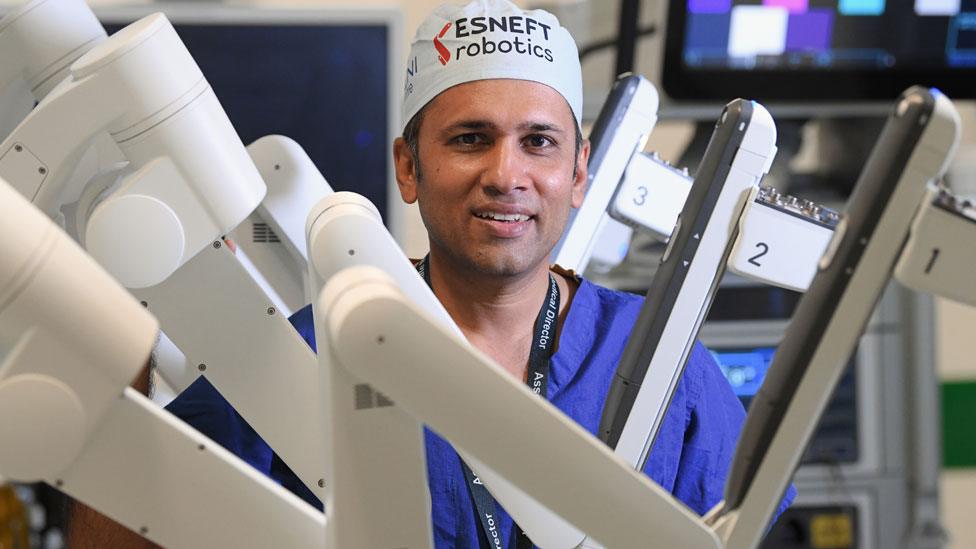
- Published26 April 2023
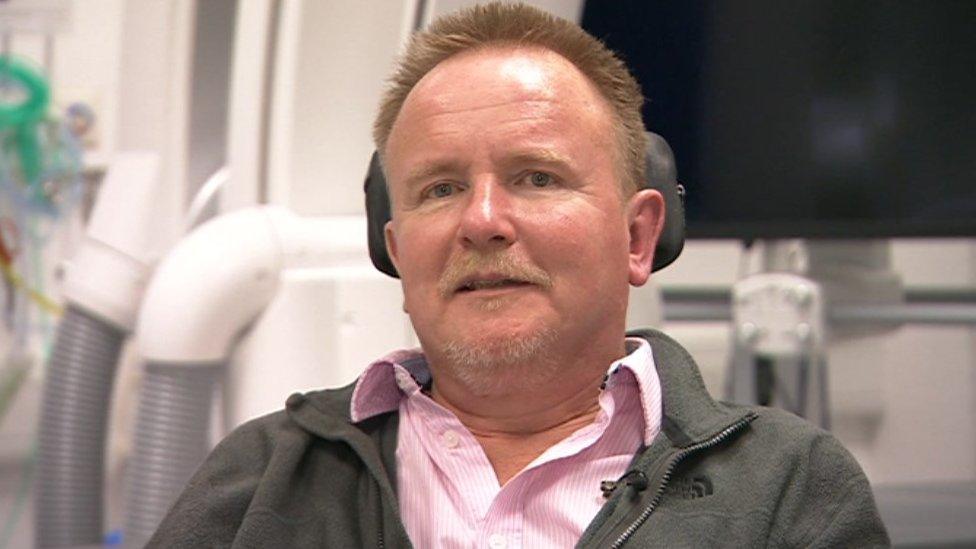
- Published4 April 2022
